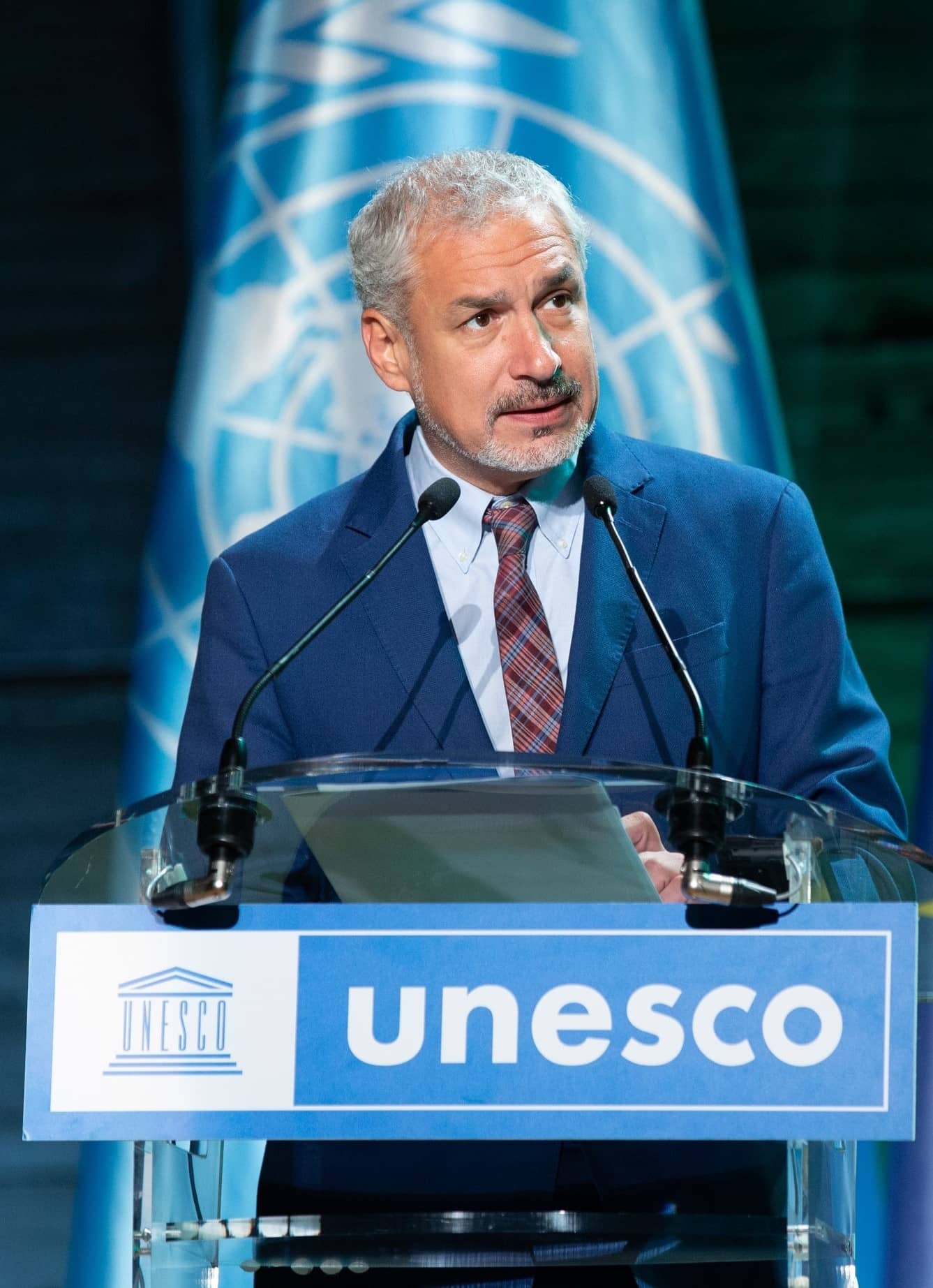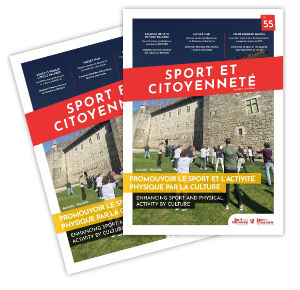“Traditional games and sports are part of our intangible cultural heritage”
Former Minister of Culture in Michelle Bachelet’s government, Chilean Ernesto Renato Ottone Ramírez has been serving as Assistant Director-General for Culture at UNESCO since 2018. Sport and Citizenship interviewed him on the links between sport and culture, on the occasion of this special review.

© UNESCO_Christelle ALIX
UNESCO is the only UN Agency with a specific mandate for culture. What role do you think culture plays in today’s world?
Since its foundation, UNESCO has placed culture at the heart of its mandate, recognizing culture’s role in building peace, celebrating diversity, and driving human-centred development. We promote a rights-based approach to culture that is anchored in the promotion of cultural and linguistic diversity across the cultural field. As the embodiment of the collective memory of communities, the living and evolving heritage – including music, dance, rituals and traditional games and sports – strengthens the sense of identity and belonging, as well as resilience and the ability to project oneself into the future.
In recent years, culture has progressively been integrated into the international agenda. Its contribution to sustainable development and the defense of human dignity is increasingly acknowledged, notably through social cohesion and innovation. In September 2022, 150 Ministers of Culture gathered in Mexico for the UNESCO Conference on Cultural Policies and adopted the landmark MONDIACULT Declaration. The historic texts recognized, for the first time, that culture is a global public good.
Culture also creates positive socio-economic impacts. According to UNESCO data, the cultural and creative industries employ more young people than any other sectors, account for some 6% of all existing jobs globally, and generate some 3% of global GDP, making these industries an important source of income and opportunities. Under the vision of MONDIACULT, culture can further contribute to reducing inequalities, including for women, youth, children, indigenous peoples, and persons with disabilities.
Culture has been recognized as a global public good
In the wake of conflicts and emergencies, reviving cultural heritage and cultural life is essential to rebuilding communities and promoting reconciliation. For decades, UNESCO has supported the reconstruction and recovery of culture in the wake of conflicts and emergencies, from Bosnia and Herzegovina, to Timbuktu (Mali), Iraq, Beirut (Lebanon), Afghanistan, and now Ukraine. In fact, at a time of great change, culture matters more than ever. It has long been a driver of social transformation, helping us to devise solutions to global challenges. Today, we need culture to make communities resilient, and to provide a sense of hope for the future.
 Traditional sports and games are a link between sport and culture. How is UNESCO involved in their promotion?
Traditional sports and games are a link between sport and culture. How is UNESCO involved in their promotion?
A variety of traditional games and sports are practised around the world, embodying diverse expressions of culture. Under the UNESCO 2003 Convention for the Safeguarding of the Intangible Cultural Heritage, traditional games and sports may be considered an integral part of the living heritage of humanity, provided that they satisfy the definitions provided in the text.Some of the examples of traditional games and sports inscribed on the Lists of the UNESCO 2003 Convention include:
- Cultivating ludodiversity: safeguarding traditional games in Flanders (Belgium; Register on Good Safeguarding Practices, inscribed in 2011)
- Chovqan, a traditional horse-rising game (Azerbaijan; Urgent Safeguarding List, inscribed in 2013)
- Kirkpinar oil wrestling festival (Turkey, Representative List, inscribed in 2015)
- Hurling (Ireland, Representative List, inscribed in 2018)
- Traditional Korean wrestling (Ssirum/Ssireum) (Democratic People’s Republic of Korea and Republic of Korea, Representative List, inscribed in 2018)
These traditional games and sports are primarily played in groups within a community, creating a sense of identity and cohesion. It can also enhance tolerance and understanding between community members.
With the ongoing processes of globalisation and social transformation, these practices are also experiencing transformation, and in some cases disappearing. Children and young people have fewer opportunities to participate in traditional sports and games, making the inter-generational transmission a challenge. Safeguarding traditional games and sports is more than about physical activities – it is about the continuation of our shared humanity in all its diversity and vitality.
Sport and Citizenship 55 : enhancing sport and physical activity by culture











 MEMBERSHIP
MEMBERSHIP CONTACT
CONTACT FACEBOOK
FACEBOOK